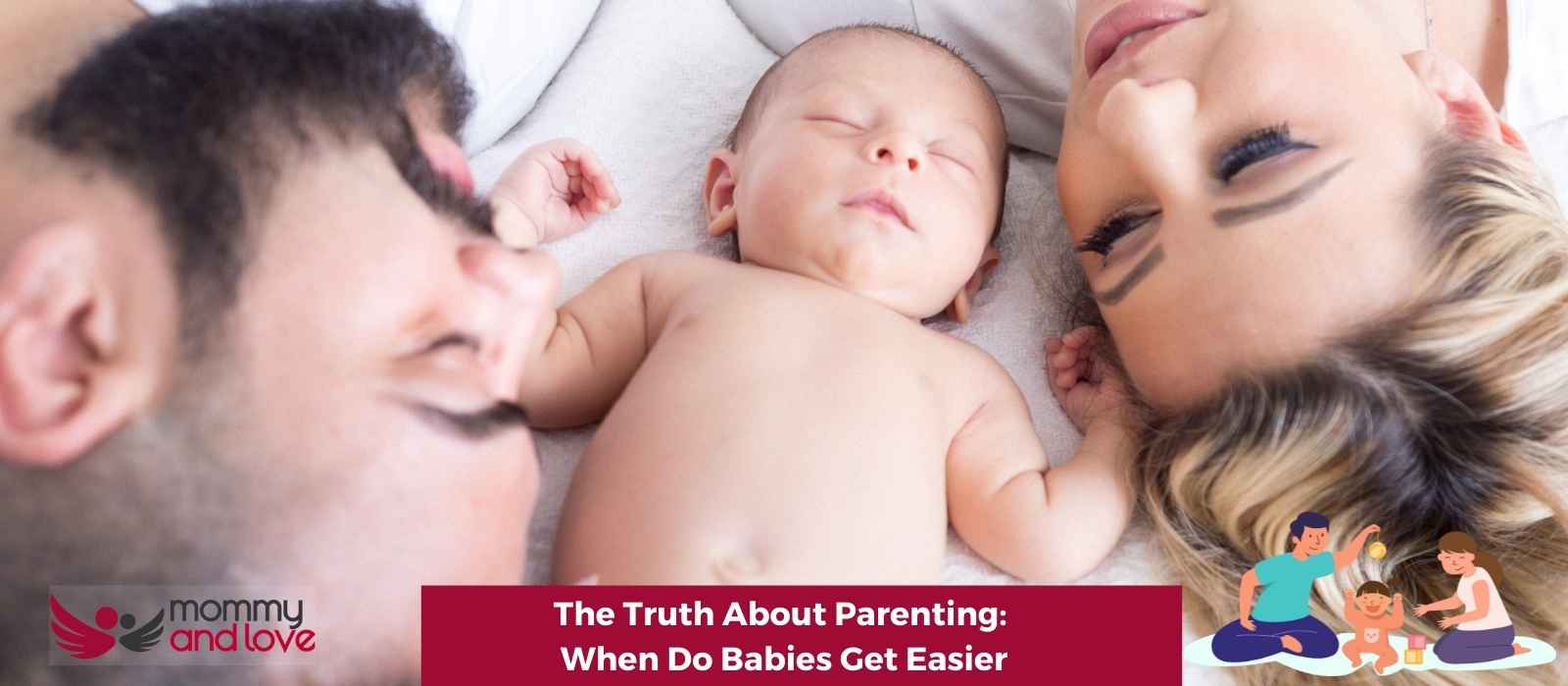I remember sitting there during a night feed after having my first baby and thinking how this was totally not what I expected. That first night in the hospital lulled me into a false sense of security because my little one slept peacefully all night. But I since learned that this is not uncommon because birth takes it out of the baby just as much as it does for the mom.
So, in that dimly lit nursery, my breasts aching as my baby struggled to latch on and my eyes barely able to stay open, I had to question what I’d gotten myself into; was it ever going to get better? When do babies get easier?
The first few weeks, even months of your baby’s life can feel as though they drag on forever. As a new parent, you’re fighting through the newborn stage trying to get as much rest as possible, care for your baby, and still cope with the demands of day-to-day life. But rest assured, once your new baby gets to around three or four months old, things will start to relent a bit.
At this age, your baby will sleep longer and will interact with you more so you’ll almost feel as though your efforts are being rewarded. What’s more, at this stage, you’ll have started to get into more of a routine and, if this is your first baby, you’ll be more confident in your parenting skills.
Key Takeaways
When babies get easier
What to expect at six weeks
What to expect at eight weeks
What to expect at twelve weeks
Taking care of yourself
Do Babies Ever Get Easier?
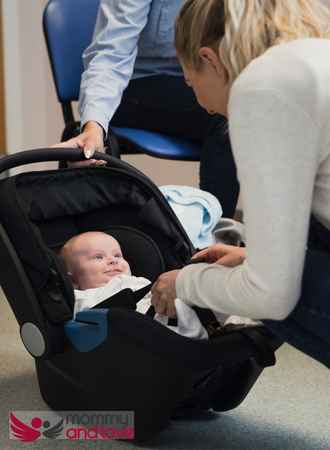
The first few weeks after having a baby are some of the most testing times of your life. You’ve got to deal with your own recovery in the first few days as well as taking care of someone who is totally dependant on your for EVERYTHING. That’s a huge responsibility but these difficult days won’t last forever.
When you were pregnant, you probably imagined the blissful hours you’d spend with your baby but a lot of new mothers find that these idyllic images are replaced with dirty diapers, crying, feeding problems, and being sleep deprived. All of that on top of your own mood changes and you’ve got a potential cocktail for disaster. This is why it’s super important to incorporate daily self care but I’ll cover that more later on.
For now, you want to know when babies get easier.
The good news is that babies get easier around the three to four month mark. But the rate at which this happens will vary between families so try not to put a timeframe on it.
What’s more, I’d highly encourage you to try to cherish the newborn stage as much as possible because it passes so quickly. Before you know it, you’ve got a terrible toddler on your hands and you’d kill for the days when you could wrap them up in your arms and they wouldn’t fight to get away.
Of course, I completely understand that right now, you’re not feeling this but after three to four months, you’ll have established sleep schedules and your baby will start smiling and making sounds so they whole baby thing suddenly feels a lot more manageable.
Also, keep in mind that many women find the newborn phase relatively easy but start to struggle down the line. Being a parent involves so many emotions and challenges and no two experiences are the same.
Will It Get Easier When My Baby Is Six Weeks Old?
A lot of people told me that things would start to get easier around the six week mark. Boy, do I wish I hadn’t listened!
Six weeks is still such a young age and your baby won’t yet be sleeping through the night. Most babies at this age will still be feeding regularly and it’s not all that different to the newborn stage.
It’s not uncommon for babies at this age to cluster feed as they’ll be going trough a growth spurt. So, expect to not only have a hungry baby but also one that can be grumpy and may spend a lot of time crying. They’ll like be clingy and get upset when mom isn’t around so this can be a little overwhelming.
What About At Eight Weeks Of Age?
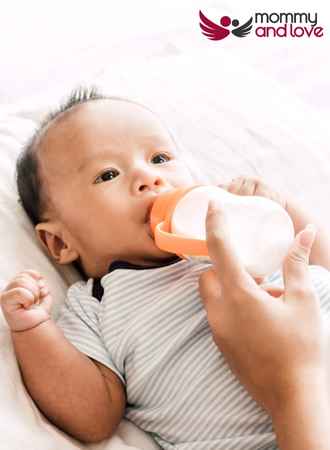
At eight weeks old, things will begin to get easier as there’s a good chance that your baby has a good feeding routine, whether you are breast or bottle feeding. They probably will still be waking up for a night feed but the length of time baby sleeps will likely be longer so you’ll get nice long stretches of sleep which will make you feel more energetic.
On top of this, the first time that baby smiles or coos at you makes all of the stress melt away. Those first weeks have been fraught with difficulties but seeing your little one start to interact is the only reward you’ll need.
Again, all babies are different and there will likely still be several challenges at this stage but you’ll almost certainly be feeling more established and confident as a parent.
Surely Twelve Weeks Is Long Enough?
A newborn baby will be sleeping for even longer stretches by the age of twelve weeks which is great news for you. You’ll be getting much more sleep and many moms feel a bit more human at this point.
Also, consider the fact that your baby won’t be as clingy anymore as they’ll be much more able to entertain themselves. Brightly colored baby gyms, rattles, soft toys, and many other items will keep your baby happy for a short period so that you can get on with some chores or just have a cup of coffee in peace.
Mom Matters Just As Much As Baby

As a new parent, it is so easy to focus all of your energy on your little bundle of joy. And no, I’m not telling you that you’re wrong for doing so; newborn baby care requires a lot of attention. But you’ll only be as good to your baby as you are to yourself.
Just because you became a mom, that doesn’t mean you stopped being human. It bothers me so much when I see new parents being martyrs and thinking that self care had to end the moment their baby arrived. Stop it! You matter too!
If you want to make sure you get through those early days as easily as possible, you need to dedicate some time to yourself as well. Here are my top tips on looking after yourself so that you’re in a prime position to give your baby the best care; and don’t feel guilty about doing it!
Maintain A Good Diet
During pregnancy, we’re urged to eat all the right things because it’s good for our baby. But having a good meal is just as important after giving birth because you need to keep your energy levels up.
One of the main issues faced by new parents is finding the time to actually prepare a meal. However, it’s essential that you come up with a plan that fits in with your routine. If you don’t eat well, it’s going to affect you and, as a result, will affect your baby.
You might consider batch cooking one night a week and freezing meals so all you need to do is defrost and reheat them. Some moms are lucky enough to have family or friends that will chip in with the cooking and if that’s the case – let them!
Failing that, don’t be afraid to make use of takeout services or food subscriptions. This might be a more expensive option but in the early days, while you’re becoming accustomed to your new situation, it can be worth it just to remove one aspect of stress.
Try To Get Quality Sleep
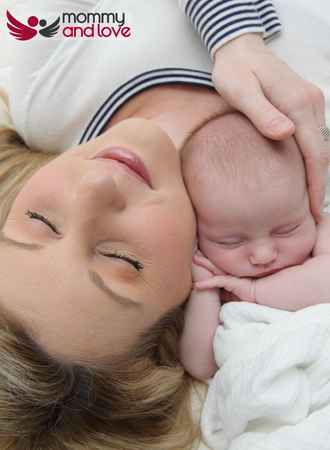
We’re all told to sleep when our babies sleep. It’s a nice idea but not always the easiest thing to put into practice. You may find that you have time to get some chores done while your baby takes a nap or you might simply want to enjoy a few pages of a book or catch up on the latest episode of your favorite TV show.
But there’s nothing wrong with asking for help during your baby’s awake time. If your partner is at home then it’s OK to ask them to take over at bath time or do a feed while you take a nap for an hour. The difference you’ll feel will be noticeable and it could be just what you need to get through the day.
If you’ve got the available finances, it might be worth hiring a postpartum doula who will be about to help you in the first couple weeks. This is an amazing way to fit in a quick snooze during the demanding newborn stage.
Feeding Baby
Both you and your baby need to learn a lot about feeding in those first weeks. This is especially true if you’re breastfeeding and there are a whole load of other things to take into account with this like difficulty latching on, sore nipples, and so much more.
Allow yourself time to get to know how your baby feeds and don’t kick yourself if breastfeeding doesn’t come naturally. My third baby just would not take to it, no matter what I tried. I wish now that I hadn’t given up so easily and had enrolled in a breastfeeding class but you live and learn and it leaves me able to advise you that these classes could be a gamechanger.
If you’re formula feeding, you’ve also got a lot of challenges ahead. Things like figuring out how many scoops to use, how long to leave a bottle cooling, and planning for overnight feeds can all be difficult. Again, give yourself time, and slowly you’ll start getting into a better routine.
Don’t Overwhelm Yourself With Chores
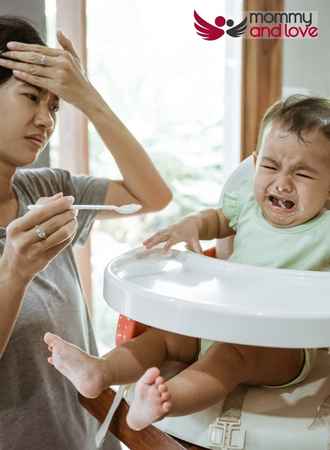
There are things that need doing around the house that can’t be put off just because you’ve had a baby.
When I look back to the early weeks, one of the things that really got me was not being able to let the chores go. I am super finicky about how and when chores are done and I refused to let anyone else help; that was a huge mistake.
One of the most helpful tips for new moms is to accept help around the house when it’s offered. It doesn’t matter if your mother-in-law doesn’t turn the bed down just how you like it or uses a different laundry detergent. It’s not the end of the world. But your well-being is important so my advice would be just to let it be, for now at least.
If you do feel as though you want to do things yourself, try to prioritize the most important jobs. There’s no point in trying to do everything and running yourself into the ground. Over the coming weeks, you will develop a routine but it’ll take time.
Putting together to-do lists and delegating tasks to various family members or to certain days and times can make things feel a lot more manageable.
Don’t Bottle Things Up
Being a mom is HARD. You’re going to experience a rollercoaster of emotions and that isn’t going to stop for the rest of your life. My eldest is 17 and I still worry and have mom guilt all the time. So what’s the point in bottling up how you feel if you’re going to do it for the rest of your life?
There isn’t one, right?
Take advantage of a friendly ear from a family member or friend and if there isn’t anyone you feel comfortable talking to, there’s nothing wrong in speaking to a qualified professional.
Other people will be able to reassure you that how you’re feeling is normal and can offer advice and words of wisdom to help you through. Even just the act of getting something off your chest can make a huge difference so don’t keep everything inside.
Understand Yourself
All mothers are different. All babies are different so never try to compare your child to other babies and don’t think that your feelings are not valid.
If you find that you’re struggling to cope with a lack of sleep while your friend sailed through those first few days and weeks on coffee and good will, that doesn’t make you a bad parent. It makes you human.
Other moms worry that the household chores won’t get done and that they struggle to find a balance between everything life is throwing at them. That’s normal too.
Take the time to get to know yourself and how you’re feeling. By doing this, you’ll be able to tend to your own needs more effectively. Understand what aspects of parenthood stress you out and what things you can do to make life easier.
And when you need a break, don’t ever feel guilty about roping in a family member or friend to give you an hour of peace. Parenting can feel overwhelming but by ignoring your own needs, further problems, like postpartum depression, can arise.
Understand The Importance Of Self Care

I think I’ve made it pretty clear by now that taking care of yourself isn’t a crime after becoming a parent. But so many women don’t do it.
Self care is simply the act of doing something for yourself. What that something is will vary between people but it might include any of the following:
Taking a relaxing bath or shower
Sleeping
Reading a book
Going for a walk
Watching a movie
Catching up with friends
Going out for a meal
Practicing yoga
Meditation
Engaging in a hobby
Painting your nails
Getting your hair done
All of these things are just for you. They don’t involve being a mom or worrying about your baby (you’re always going to worry about them but in this moment, you can feel confident that someone else is taking care of things.)
Whether it’s 15 minutes or a couple of hours, try to throw in some self-care at least once a day.
Conclusion
After having a baby, you’ll realize that things can be pretty challenging. A lack of sleep, social isolation, chores piling up, and a baby that won’t stop crying are all very real experiences for new moms and dads. So most people find themselves wondering when babies start to get easier.
After around three to four months, you’ll notice that your baby starts to get easier as they’ll be sleeping through the night and you’ll have a pretty solid routine in place.
Take into account that all babies are different and you need to get to know what works for you and your family when welcoming a new baby into the fold.

